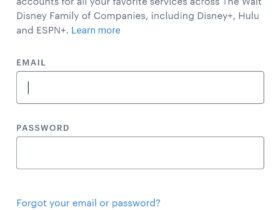how to write an email to a professor
As a college student, you’re probably used to writing emails to professors. But what if you want something from them other than a grade? That’s where the basic principles of emailing apply—only this time, there’s a lot more on the line. If you can convince your professor that your request is worth their time and attention, then you have an excellent chance of getting what you want out of them. You can also use these tips to write a strong cover letter or application letter for any professional opportunity or job opening.
Come up with an engaging subject line
- Make the subject line a question.
- Personalize it by using their name, or even a nickname if you’ve got one for them. For example: “Hey Professor Smith, how’s your summer going?”
- Make it relevant to the professor and what they’re teaching/researching. For example: “Will there be an assignment due this week?” or “I’m having trouble understanding Linear Algebra – can I come talk to you?”
- Be clear about what you want in the email—don’t make them guess! This may sound obvious, but we’ve all gotten emails where we were confused as to why we received them (or at least I have).
Address the professor properly
When you address a professor, it’s important to use their first name and last name. Don’t use nicknames of any kind—this is a common mistake. Similarly, don’t write “professor” or “doctor,” because this will make the email sound too formal. Finally, don’t use words like “mister,” “missus,” or “madam” in an attempt to be polite; email isn’t exactly the place for such formality.
Introduce yourself
- Introduce yourself. If you don’t know the professor, your first line should be “Hello Professor Smith,” or whatever his or her name is. You may want to mention the class or courses you’ve taken from them before, if applicable. This will help put your email in context for the professor and make it easier for them to find their way around your message.
- Explain why you are writing. This can be as simple as saying that you would like more information about a course they teach, or perhaps something else (like an internship) that interests you and might involve working with this particular professor in some capacity. Don’t assume that they automatically know what’s going on with every single student in their classes—just because someone is teaching a certain course doesn’t mean they know everything about every student who took it! Be brief and concise here; if there is something specific about their teaching style which piqued your interest (e.g., “I love how organized and clear-cut everything seems”), feel free to share this with them so long as it doesn’t come across as distracting from what’s important: namely, letting them know exactly why *you* are contacting them.*
Thank the professor sincerely
Thank the professor for their time. You can do this by saying something like:
Thank you for your time today and for considering my request. I greatly appreciate your willingness to help me with my research and am deeply grateful for your assistance in making this happen. It is an honor to be in contact with such an esteemed scholar, and I look forward to working together in the future on this project!
Make your request clear and concise
To make your request clear and concise, there are a few things you should keep in mind. First of all, don’t overuse words. The professor is likely busy and doesn’t have time to read an unnecessarily long email. Make sure that your message is concise, but also make it easy to understand by using simple language. Additionally, avoid rambling or going off topic; if the professor wants more details about something you’ve said in your email, he or she will ask for them!
Explain why you are a good candidate for the request
You should also explain why you are a good candidate for the request. For example, if it is a position that requires experience with a particular software package, cite your experience with that software package in previous jobs or school projects. If it’s an internship at an organization where many people have interned before, focus on what makes you stand out from other applicants.
A simple email to a professor can open doors for you.
As you’ve probably heard before, the world of academia is a small one. If you want to get ahead in your field, it’s important to network with your professors and other experts in your area. One way to do this is by sending them emails asking for help or advice. This can be intimidating, but as long as you’re polite and professional (and keep it short), there’s no reason why this shouldn’t be something you’re doing every month or so!
Here are some tips that will help:
- Be clear about what information they’ll need from them if they decide to respond – try not to assume that they know everything about the subject matter because they’re an expert in their field. One way around this is by finding out where their interests lie outside of teaching – maybe there’s something related but not directly related? Or maybe there were some personal experiences that shaped how he/she thinks about things today? Then again, perhaps nothing at all? Either way should work fine as long as everyone involved knows what kind of response should be expected from either party later down the line (i’m talking future conversations here).
Conclusion
As a student it is important to know how to write an email to a professor. In this article, we have discussed the basic points of writing an email to a professor and how it can be helpful. Thank you for reading!
Takeaway: A good way to start your email is by saying that you are excited or nervous about the course they are teaching. You could also tell them why they are qualified for teaching this subject matter/materials used in their lectures/methods used in their lectures/etc.
In this module, we looked at the importance of writing an email to professors and how it can be helpful while studying in college. We discussed some tips on how students should write such emails keeping in mind their purpose behind writing it; whether they want any kind of clarification on their assignment or feedback regarding their performance during exams






Leave a Reply
View Comments